Solar
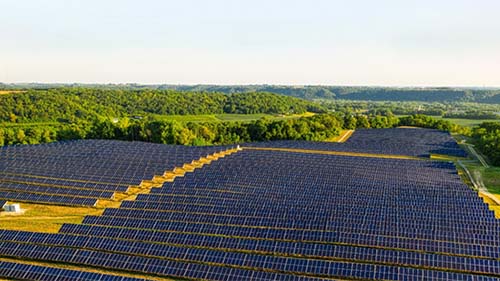
Solar Self-Developed Sites (Virginia)
GAI provides utility scale solar development consulting services for our confidential client. Tasks include environmental services, cultural resources, civil survey, geotechnical, low voltage (PV array layout), civil site design, and county permit preparation and approvals to support our client’s issuance of an RFP to contractors using the EPC (design-build) execution model. GAI completes all necessary field studies associated with the client’s projects, as well as obtains requisite concurrences regarding Rare, Threatened, and Endangered (RTE) species and cultural findings. GAI also identifies the anticipated impacts for streams and wetlands.
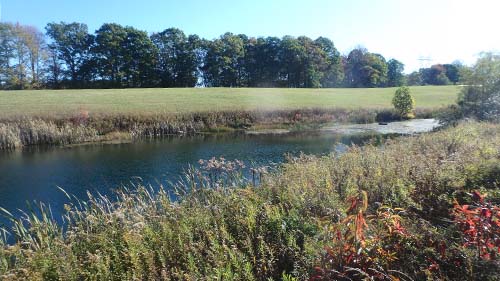
Solar Environmental Permitting (West Virginia)
GAI’s client is proposing to construct a new 90 MW photovoltaic solar energy facility that requires the development of an estimated 529 acres of land located in West Virginia. GAI is currently performing stream and wetland field investigations, delineations and stream identification, stream and wetland permitting, Rare, Threatened, and Endangered (RTE) species coordination, cultural resources coordination and archeological fieldwork, West Virginia PSC Filing, WVDEP NPDES construction stormwater permitting, and local county development permitting.
GAI also conducted a preliminary geotechnical investigation consisting of five borings up to 20-feet deep and the associated lab tests. Findings provided indicative parameters for the project’s foundation design. Once completed, the project will generate enough electricity to power 16,000 homes.

KY PSC Application (Kentucky)
GAI performed several studies as required by the State Siting Board and the application process for a 80 MWac facility in the PJM portion of Kentucky. Studies performed included traffic study, noise studies, photosimulations, geotechnical studies, glint/glare, and PSC testimony.
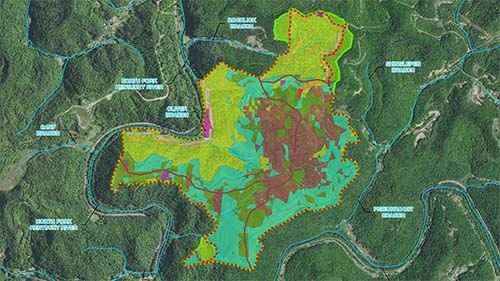
Solar Farm Preliminary Desktop Analysis (Kentucky)
As part of early stage development for a solar project, GAI conducted a preliminary desktop study on a former mountain top removal site. The study consisted of three main focus areas: environmental due diligence, entitlement due diligence, and geotechnical review of mine records and geology. GAI also conducted a preliminary hydraulic and hydrologic (H&H) study of the area using a Flo2D model.
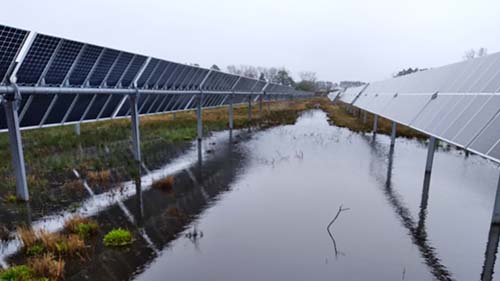
Solar Farm Drainage Remediation Projects (Virginia and North Carolina)
GAI conducted an environmental audit of existing solar sites in Virginia and North Carolina to visually observe the existing conditions at the sites and to evaluate available records for compliance with federal, state, and local environmental permitting requirements and regulations, as applicable to the project. GAI provided on-site inspections, interviews, and document review to identify any specific instances of environmental compliance deficiencies, as well as noteworthy practices. The final Environmental Audit Report summarized GAI’s field observations and defined the state of compliance of environmental permits and regulations. In addition, GAI has completed civil engineering design services for the completed solar farms to address drainage inadequacies. The initial phase (study phase) of the scope included topographic survey, geotechnical assessment, and recommendations for drainage remediation. For the second phase (engineering phase), GAI developed plans and calculations for drainage improvement and maintenance. GAI also prepared construction documents, estimates, and sequencing, as well as the permitting documentation required to implement the remediation design, such as the E&S control plan. Finally, GAI provided technical support to select a contractor for the construction.

Solar Environmental Inspections and Environmental Compliance Coordinator Support Services (Virginia)
GAI currently provides environmental compliance coordinator (ECC) support for construction of multiple solar facilities in Virginia. As part of this service, GAI is responsible for compliance with VA Pollutant Discharge Elimination System (VPDES) VAR 10 General Construction Permits, County Land Disturbing Permits, U.S. Army Corps of Engineer (USACE) Water Permits, and various other environmental permits.
Tasks include coordination with project and site managers, environmental staff, contractors, and regulatory agencies; support with oversight of Storm Water Pollution Prevention Plans (SWPPP) including Erosion and Sediment Controls Plans (E&SCP), Spill Prevention Control and Countermeasure Plans, Storm Water Management Plans, Fugitive Dust plans, required weekly inspection reports; support with oversight of permitting; and weekly E&SC and site condition inspections with reporting of findings to project teams.
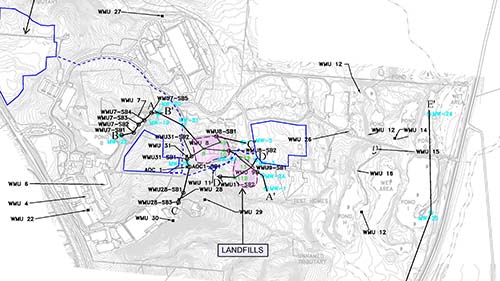
Solar Geotechnical Engineering (Ohio)
GAI provided geotechnical engineering services for this proposed new solar array facility. The project consisted of three array sites within the facility’s property and included a study to determine the type of foundations for the site. GAI performed a subsurface exploration to obtain data to provide design parameters, recommendations, and design criteria for foundations for the proposed structures and general site development. The project included advancing a total of 11 test borings to a depth of 15 feet each, a laboratory testing program, and preparation of a geotechnical engineering report.
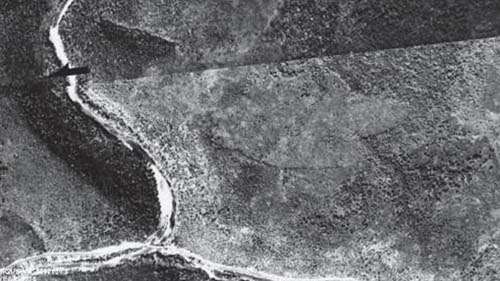
Solar Critical Issues Analysis (Pennsylvania)
GAI performed a Critical Issues Assessment for the development of a Solar Energy Project covering 2,673 acres in Pennsylvania. GAI reviewed the site topography by means of soil mapping, geology, wetlands and watercourses, watersheds, floodplains and groundwater wells. Endangered, threatened, and special concern wildlife/plant species under the jurisdiction of PA Game Commission (PGC), PA Department of Conservation and Natural Resources (PADCNR), PA Fish and Boat Commission (PFBC), and the USFWS. Wildlife and plant species were identified reviewing PNDI Environmental Review Tool and the USFWS’s IPaC tool. GAI also conducted a review of historic places and archaeological sites by obtaining a clearance letter from Pittsburgh Historical and Museum Commission (PHMC) and by reviewing information in CRGIS and PA State Historic Preservation Office (SHPO). A limited Environmental Due Diligence was also conducted by reviewing publicly available databases as well as historical aerial imagery for the project area. GAI also created a permit matrix for the project, including NPDES, SALDO, and Act 167 Stormwater Management Plan.

